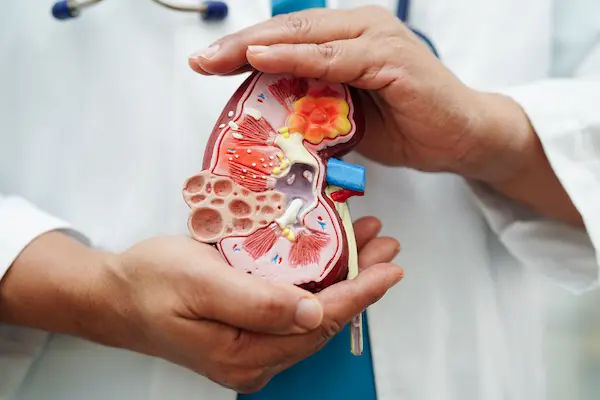Dysuria Causes, Symptoms and Treatment Options
Dysuria, or painful urination, can be caused by infections, inflammation, or underlying health issues. Learn the common causes, symptoms to watch for, and effective treatment options for relief.


If you’ve ever experienced a burning or painful sensation while urinating, you may have had dysuria. This uncomfortable condition can be distressing, but understanding its causes, symptoms, and treatment options can help you manage it effectively.
What Is Dysuria?
Dysuria is the medical term for pain or discomfort during urination. It can range from mild irritation to severe burning and is more common in women than men. While it’s often linked to infections, other factors can also contribute to this condition.
Common Causes of Dysuria
Several conditions can lead to dysuria, including:
1. Urinary Tract Infections (UTIs)
• The most common cause, especially in women.
• Bacteria enter the urinary tract, leading to inflammation and pain.
2. Sexually Transmitted Infections (STIs)
• Chlamydia, gonorrhea, and herpes can cause painful urination.
• Often accompanied by unusual discharge or sores.
3. Bladder Infections (Cystitis)
• Inflammation of the bladder due to bacterial infection.
• May cause frequent urination and lower abdominal pain.
4. Kidney Infections (Pyelonephritis)
• A more severe infection that can cause fever, back pain, and nausea along with dysuria.
5. Vaginal Infections (Yeast or Bacterial Vaginosis)
• Women may experience burning during urination due to vaginal infections.
6. Prostate Issues (In Men)
• Prostatitis (inflamed prostate) or enlarged prostate (BPH) can cause discomfort while urinating.
7. Irritants & Lifestyle Factors
• Dehydration (concentrated urine can irritate the bladder).
• Harsh soaps, perfumes, or spermicides that irritate the urethra.
• Kidney stones, which can block urine flow and cause sharp pain.
Symptoms of Dysuria
The main symptom is pain or burning during urination, but other signs may include:
• Frequent urge to urinate
• Cloudy or foul-smelling urine
• Blood in urine (hematuria)
• Pelvic pain (in women) or groin pain (in men)
• Fever or chills (if infection spreads)
Consult Top Physicians
When to See a Doctor?
While mild dysuria may resolve on its own, seek medical help if you experience:
• Severe pain or blood in urine
• Fever, nausea, or back pain (possible kidney infection)
• Symptoms lasting more than 2-3 days
• Pain with sexual activity or unusual discharge
Diagnosis & Tests
A doctor may recommend:
• Urine test (to check for infection)
• STI screening (if sexually active)
• Ultrasound or CT scan (if kidney stones are suspected)
• Cystoscopy (for chronic cases)
Treatment Options
Treatment depends on the underlying cause:
1. Antibiotics (For Infections)
• UTIs, bladder, or kidney infections are treated with antibiotics.
• STIs require specific medications.
2. Pain Relief
• Over-the-counter pain relievers (like ibuprofen) can help.
• Phenazopyridine (Azo) numbs the urinary tract temporarily (but doesn’t treat infection).
3. Home Remedies & Lifestyle Changes
• Drink plenty of water to flush out bacteria.
• Avoid caffeine, alcohol, and spicy foods that irritate the bladder.
• Practice good hygiene (wipe front to back, urinate after sex).
• Use mild, fragrance-free soaps to prevent irritation.
4. Treating Underlying Conditions
• Kidney stones may require medication or procedures.
• Prostate issues may need medications or surgery.
Preventing Dysuria
• Stay hydrated (drink 6-8 glasses of water daily).
• Urinate regularly (don’t hold it in).
• Practice safe sex (use protection).
• Avoid irritating feminine hygiene products.
When to Consult a Specialist?
If symptoms persist despite treatment, consult a urologist (for men) or gynaecologist (for women) for further evaluation.
If you're experiencing painful urination, don’t ignore it. Early diagnosis and treatment can prevent complications. You can schedule a doctor’s consultation or lab test through Apollo 24|7 for quick and reliable care.
Conclusion
Dysuria is a common but treatable condition. By understanding its causes and taking preventive steps, you can reduce discomfort and maintain good urinary health. If symptoms persist, seek medical advice for proper diagnosis and treatment.
Consult Top Physicians
Consult Top Physicians

Dr. Sandhya Chandel
General Physician/ Internal Medicine Specialist
16 Years • MBBS, MD (Int. Med.), IDCCM
Bilaspur
Apollo Hospitals Seepat Road, Bilaspur
(125+ Patients)

Dr. Mohamed Azeem
General Physician/ Internal Medicine Specialist
2 Years • MBBS,MD(Internal Medicine) CCEBDM
Karaikudi
Apollo Hospitals Karaikudi, Karaikudi

Dr. Harshendra Jaiswal
General Physician/ Internal Medicine Specialist
12 Years • MBBS , MD (General medicine)
Kolkata
108 DHANA DHANVANTARI Clinic, Kolkata
(25+ Patients)

Dr. Anand Ravi
General Physician
2 Years • MBBS
Bengaluru
PRESTIGE SHANTHINIKETAN - SOCIETY CLINIC, Bengaluru

Dr Syed Mateen Pasha
General Physician
2 Years • MBBS
Bengaluru
PRESTIGE SHANTHINIKETAN - SOCIETY CLINIC, Bengaluru
Consult Top Physicians

Dr. Sandhya Chandel
General Physician/ Internal Medicine Specialist
16 Years • MBBS, MD (Int. Med.), IDCCM
Bilaspur
Apollo Hospitals Seepat Road, Bilaspur
(125+ Patients)

Dr. Mohamed Azeem
General Physician/ Internal Medicine Specialist
2 Years • MBBS,MD(Internal Medicine) CCEBDM
Karaikudi
Apollo Hospitals Karaikudi, Karaikudi

Dr. Harshendra Jaiswal
General Physician/ Internal Medicine Specialist
12 Years • MBBS , MD (General medicine)
Kolkata
108 DHANA DHANVANTARI Clinic, Kolkata
(25+ Patients)

Dr. Anand Ravi
General Physician
2 Years • MBBS
Bengaluru
PRESTIGE SHANTHINIKETAN - SOCIETY CLINIC, Bengaluru

Dr Syed Mateen Pasha
General Physician
2 Years • MBBS
Bengaluru
PRESTIGE SHANTHINIKETAN - SOCIETY CLINIC, Bengaluru
